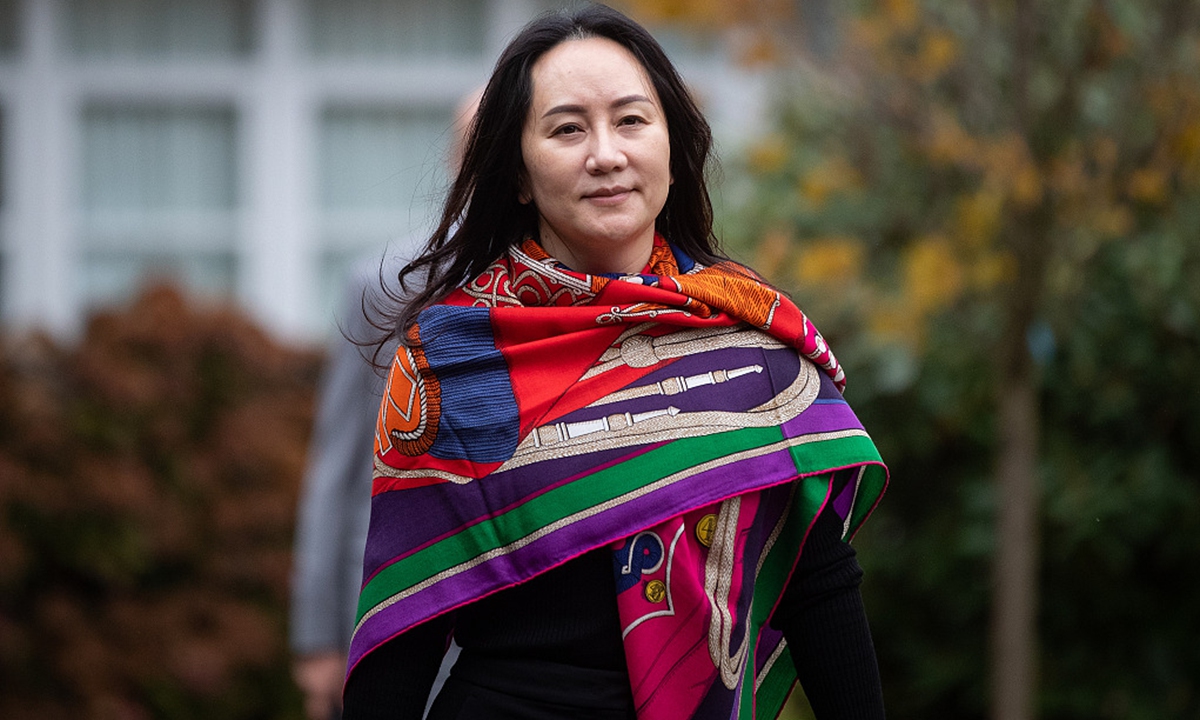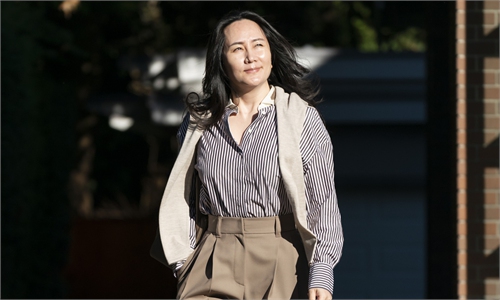
Meng Wanzhou Photo: CFP
Meng Wanzhou gained a victory in her latest battle against extradition to the US, as a Canadian judge sided with lawyers of the Huawei senior executive to allow them to pursue their claims that the US misled Canada on the basics of the case, and agreed to allow new evidence.Meng, the 48-year-old executive and daughter of Ren Zhengfei, founder of Huawei, will be permitted to provide additional evidence to show that the US omitted some key components of the case that could challenge the reliability of their extradition request, Associate Chief Justice Heather Holmes wrote in the ruling.
It can also be seen as a successful move by Huawei to target the essence of the case, which is the reliability of charges made by the US, which could become one of the reasons to end the extradition case, some observers said.
The latest progress puts HSBC under the spotlight again in China, as it has already drawn a lot of criticism, with some observers indicating previously that the British bank may face a "dead end" once its role in the conspiracy with the US is confirmed.
The latest ruling was made after Meng's defense team argued that the ongoing extradition proceedings constitute an abuse of process that should be terminated. The documents provided by the US to Canada contained material omissions and misrepresentatives, the defense team said in September.
US authorities have provided a record of the case (ROC) concerning slides from a PowerPoint presentation Meng gave an HSBC executive in Hong Kong in August 2013, which is widely considered a key document in proving Meng lied about Huawei's relationship with Skycom.
However, Meng's lawyers claim that the US deliberately omitted two slides from the PowerPoint, which showed that Meng didn't mislead the bank.
HSBC attempted to justify their false arguments and make their evidence sound more convincing by claiming that only "junior" employees were aware of the relationship between Huawei and Skycom. The bank went on to say that these "junior" employees did not report the relevant information to "senior" executives. Therefore, these executives could only assess the associated risks based on the PowerPoint presentation provided by Meng.
The additional evidence Huawei’s lawyers provided aimed to refute the ROC by showing that HSBC understood the relationship between Huawei and Skycom from the beginning, and that there was no such case that HSBC became a victim of alleged fraud committed by Meng.
“This could be part of evidence to end extradition. There are some problems here with the role of HSBC in the case,” Yue Dongxiao, a US-based lawyer closely observing the lawsuit, told the Global Times on Friday.
If the British bank was not misled by Meng, the fundamentals for the US to lay the fraud charges against the Huawei executive do not exist, he noted.
The senior executive is charged with fraud in the US on allegations that she lied to HSBC concerning Huawei's relationship with its former subsidiary Skycom in Iran, which was accused of violating US sanctions on Iran.
Meng was arrested at the Vancouver International Airport in December 2018 by Canadian authorities at the request of the US for allegedly violating US law. She faces fraud charges, and the US Justice Department announced in January 2019 that it would formally seek Meng’s extradition to the US.
Chinese authorities widely view the case as a political maneuver by the US.


